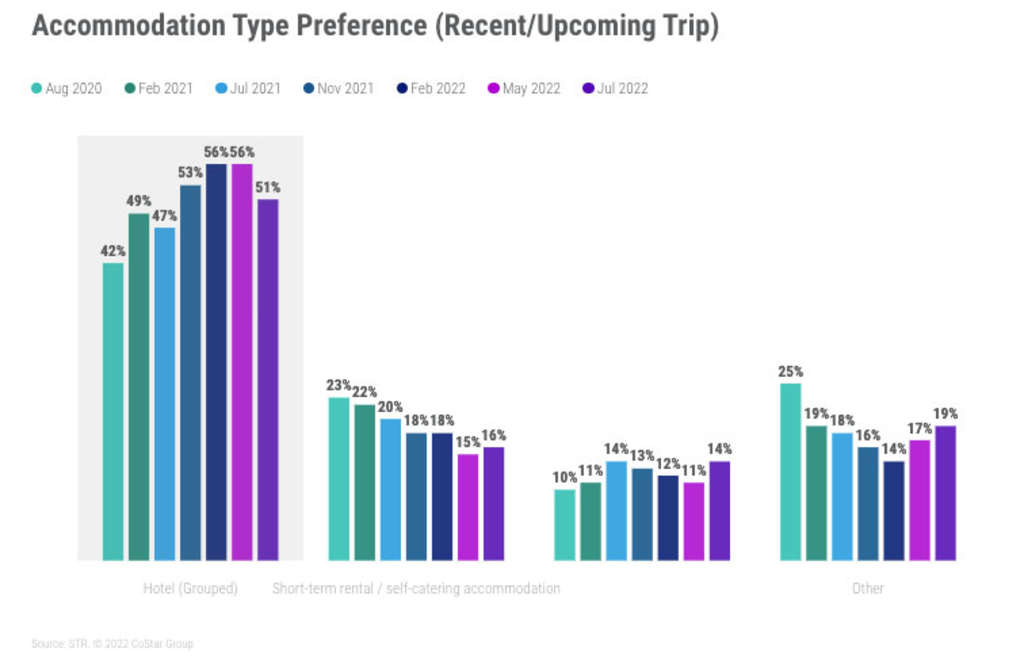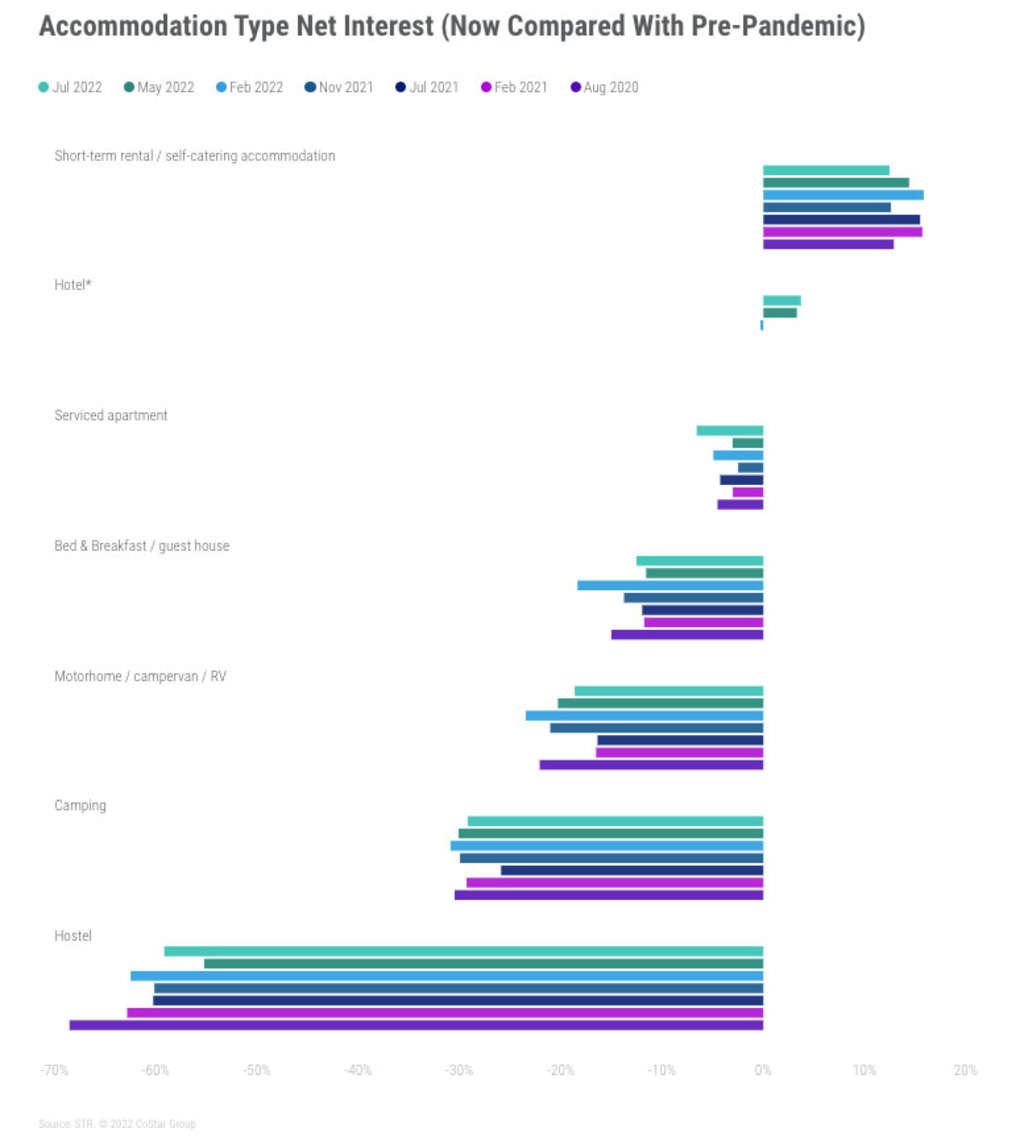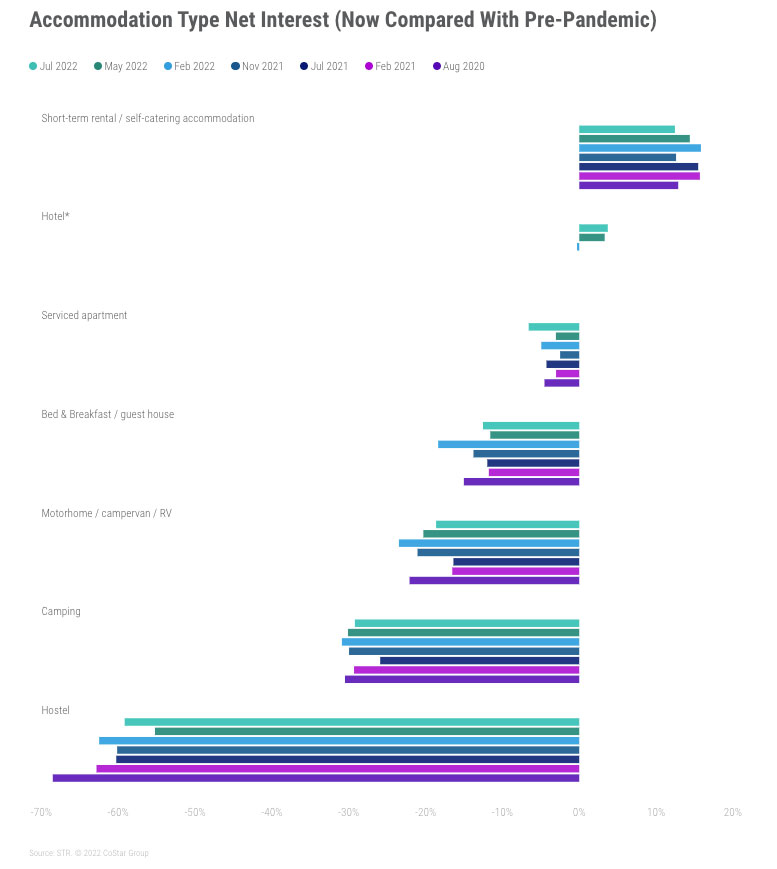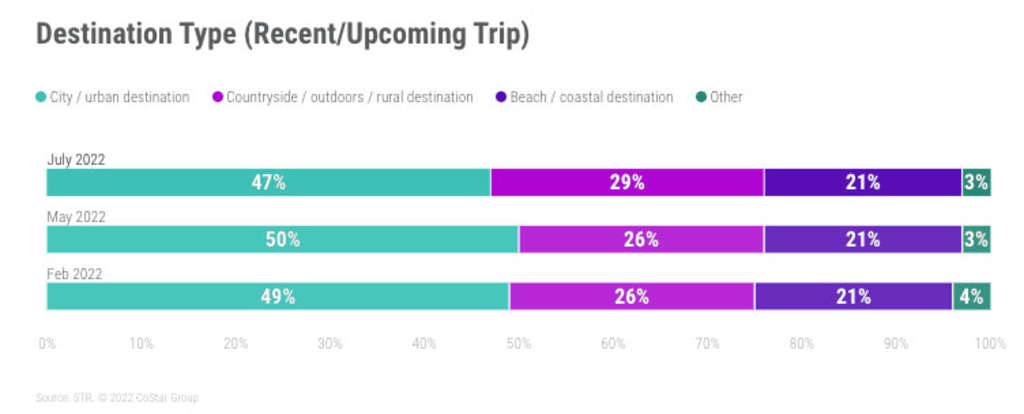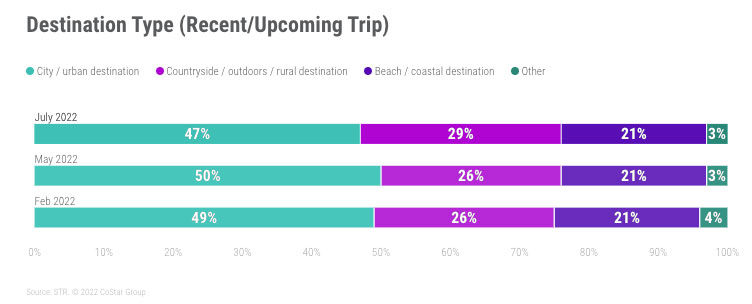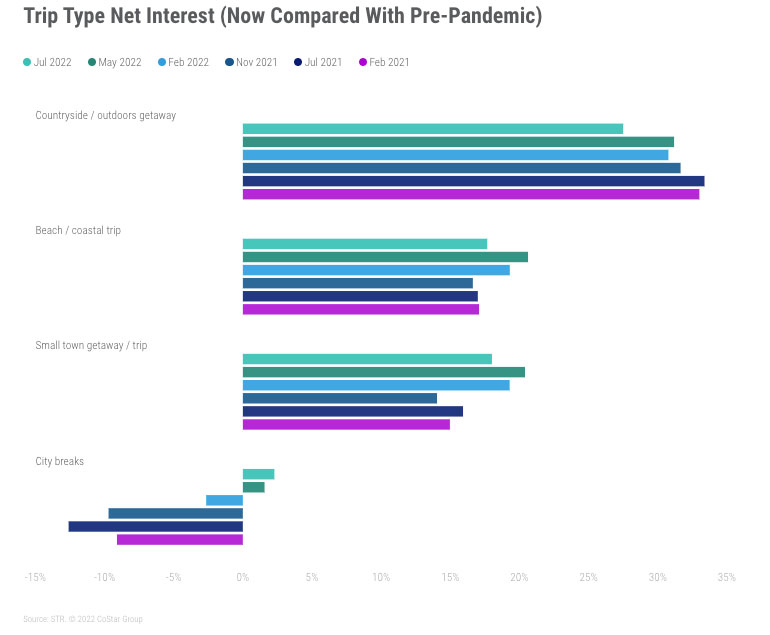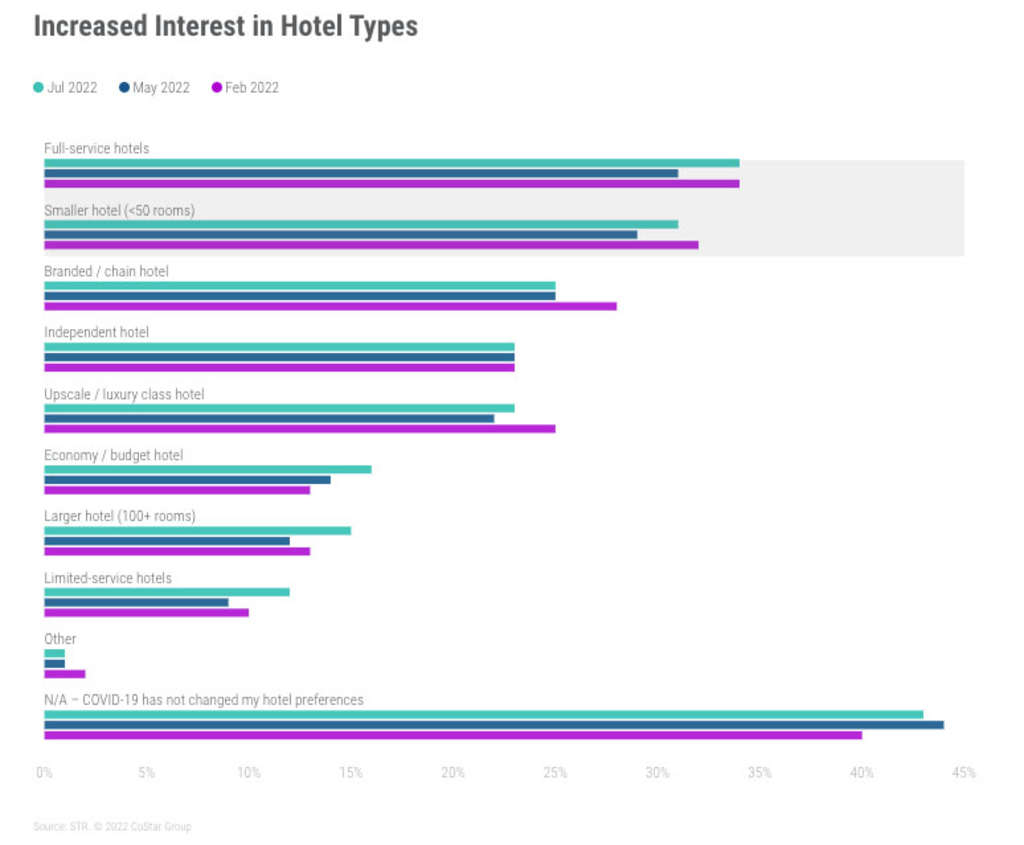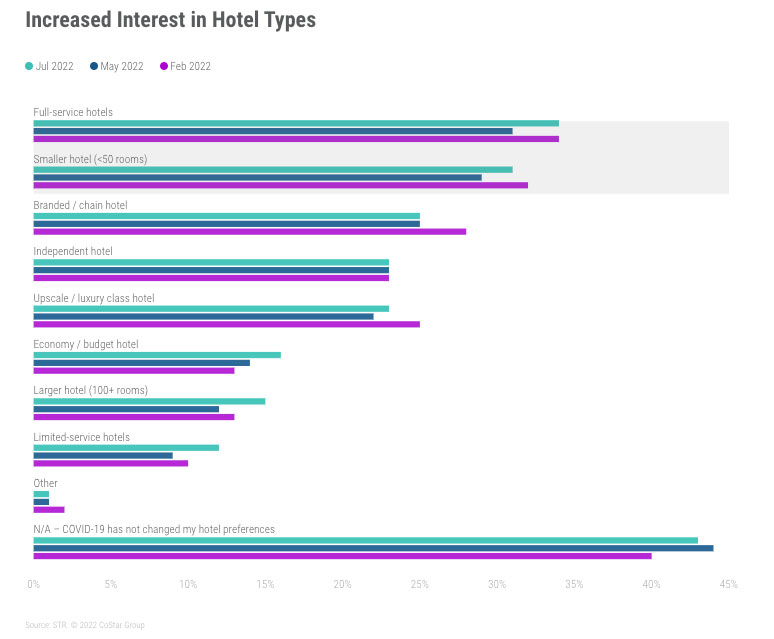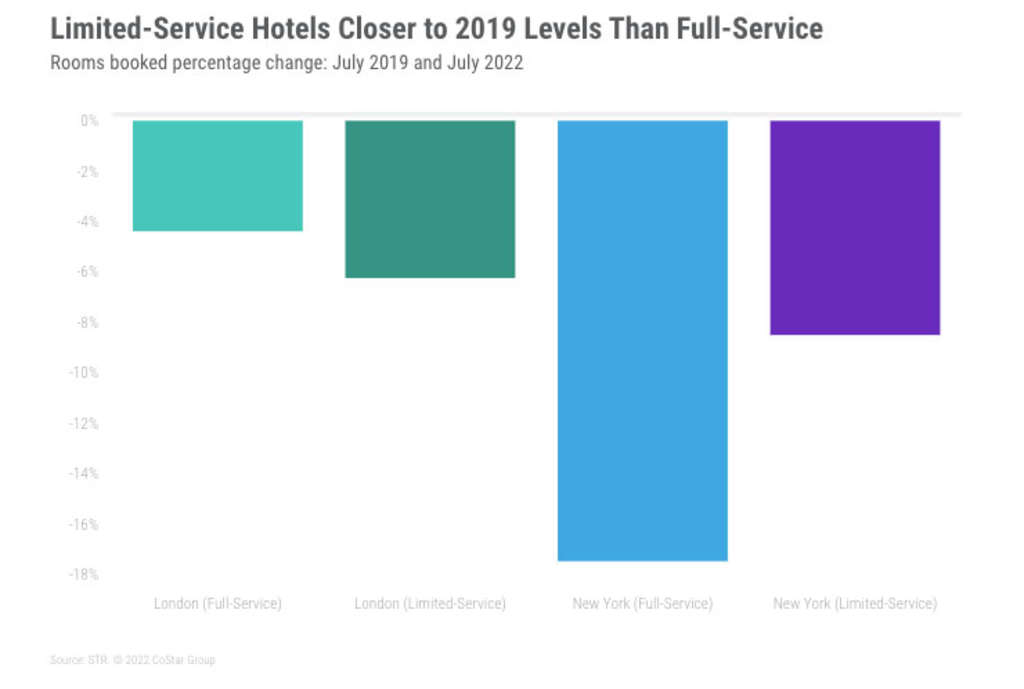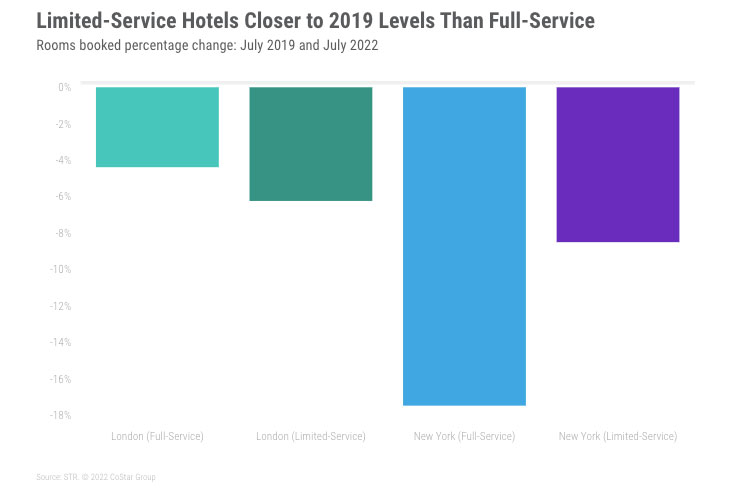Accommodation preferences: Where do travelers’ loyalties lie?
A sense of normality has returned for much of the hospitality industry since the second quarter of 2022 began. Bookings in many leisure destinations are at their highest levels since 2019, and business travel is also making a steady return. While there has been a subsequent and clear lift in hotel demand, it is interesting to see how consumers have viewed hotels vs. alternative forms of accommodation over the last several months.
In previous accommodation preference research conducted by STR, consumers showed improved sentiment toward hotels, identified the importance of flexible cancellation rates, and displayed higher tendency toward small and full-service hotels at a time when travel was really kicking into gear.
This article builds on that conversation and examines topical areas of interest based on July 2022 research. The analysis to follow tackles what forms of accommodation travelers are using as well as how limited and full-service hotels are perceived by modern day travelers.
Hotels see popularity dip despite remaining preferred choice
Encouragingly for the hotel sector, 51% of travelers for an upcoming or recently undertaken trip selected a hotel as their top choice. Compared with findings from the same time last year, this was an increase of 4%. Indeed, since July 2021, most travelers have opted to use hotels, which signals strong underlying interest in this traditional form of accommodation.
Perhaps surprisingly considering improving hotel performance in recent months, there was a slight decline in hotel engagement compared with May 2022 (51% versus 56%). This is likely due to seasonal travel patterns, as some consumers chose different accommodation, such as camping and caravanning, or undertook different types of trips compared with earlier in the year.
Hotels closing gap on short-term rentals?
When asked which accommodation is currently most appealing for a leisure trip, hotels were again perceived less well than short-term rentals. The findings suggest hotels still have ground to regain, although there has been some progress since May 2022.
Interestingly, individuals prone to booking short-term rentals show much less interest in hotels. Meanwhile, hotel users show more openness toward short-term rentals. These differing opinions suggest hoteliers should focus on customer retention, including winning back customers who have may strayed to short-term rentals because of the pandemic.
Important role of city breaks in hotel recovery
The study shows urban destinations remain top of mind among travelers as just under half had booked a trip to a city or urban destination.
Delving deeper into the data, the findings highlight that those who choose urban destinations are far more likely to select hotels as their accommodation of choice. Among visitors to rural destinations, short-term rentals appealed more. Rural destinations also came out on top for those choosing camping as their means of accommodation.
These findings are somewhat to be expected as different accommodation types lend themselves to specific destinations. Hotels are more common in urban destinations while short-term rentals are more often found in rural destinations. Nonetheless, the analysis reveals an important link between urban destinations and hotel performance recovery.
However, countryside destinations continue to pique the attention of travelers as net interest for countryside or outdoors trips was again higher than other trip types. City stays though are becoming more attractive, which will be warmly welcomed by many hotel operators.
Full-service hotels capture attention of guests
Full-service hotels, defined by STR as having multiple facilities onsite such as restaurants, are in high demand when it comes to accommodation preferences. Leading the way as the most popular hotel type, this property type has grown in favor recently. This is likely due to a shift in needs as consumers, eager to make up for lost time after restrictions, seek additional levels of service and comfort.
In addition, smaller hotels with less than 50 rooms are also particularly appealing in the current environment, which is likely due to lingering concerns and increased desire for personal space due to COVID-19.
Limited-service hotels, defined by STR as properties that offer limited facilities, sit on the other end of the spectrum being the least sought-after type of hotel currently.
However, knowing preferences do not always align with purchases, hotel sentiment and actualized hotel performance can follow different paths. Looking at London and New York hotel performance in July 2022 compared with July 2019, there are contrasting fortunes for limited-service and full-service properties. In New York, limited-service hotels saw a less steep contraction in demand. Meanwhile, in London, full-service hotels narrowly have the edge.
The latest STR hotel performance data shows a positive trajectory for travel. Understanding consumer preferences and actual behavior regarding choosing accommodation and destinations is crucial intelligence to enable more effective marketing. The research shows that while hotels are the most common type of accommodation, they are perceived less well than short-terms rentals currently. Increased efforts and more communication to highlight the benefits of staying in a hotel will help to drive-up attitudes. As COVID-19 concerns continue to lessen, and as many consumers seek new experiences, facilities and services, the sector is well-positioned to continue benefitting from tourism growth.
About STR
STR provides premium data benchmarking, analytics and marketplace insights for the global hospitality industry. Founded in 1985, STR maintains a presence in 15 countries with a corporate North American headquarters in Hendersonville, Tennessee, an international headquarters in London, and an Asia Pacific headquarters in Singapore. STR was acquired in October 2019 by CoStar Group, Inc. (NASDAQ: CSGP), the leading provider of commercial real estate information, analytics and online marketplaces. For more information, please visit str.com and costargroup.com.

